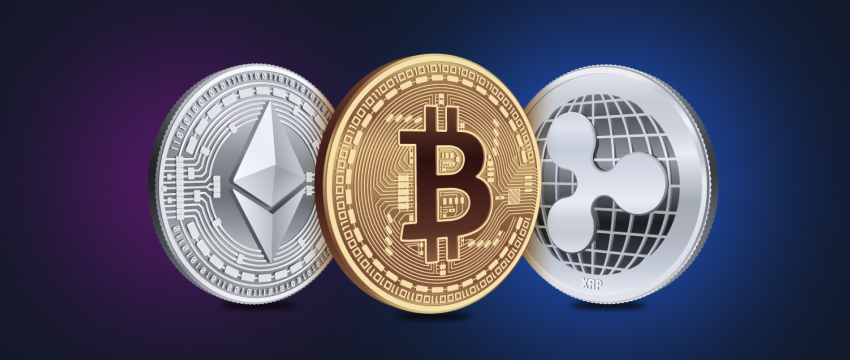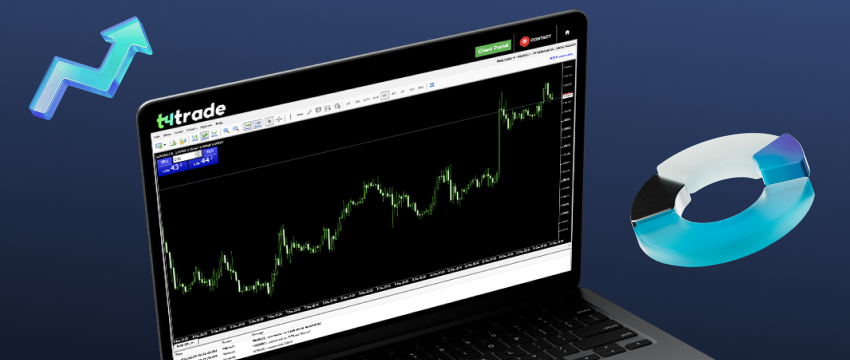Technology has evolved significantly over the last few decades. The rise in artificial intelligence and machine learning has exploded, with advancements unlike the world has ever witnessed. This evolution has extended to money, with digital currencies like Bitcoin, Ethereum, and BNB taking centre stage. Interest in cryptocurrencies is only intensifiying, and changing the way society thinks about money. This begs the question, are digital currencies the way of the future? Let’s discuss.
What differentiates digital currencies from traditional money?
The most obvious difference is of course that digital currencies only exist in electronic form. In contrast, ordinary money may be physically exchanged using coins or notes. The most popular digital currencies are decentralised, and transactions involving them are executed using computers or electronic wallets connected to specific networks and the Internet. Fiat currencies are centralised, backed and managed by a governmental entity. In the US, this would be the U.S. Federal Reserve.
Like physical currencies, digital currencies are assigned a value and can be used to purchase a variety of goods and services. They typically facilitate instant transactions, regardless of where you are in the world.
Digital currencies are widely accepted by investors, technologists, entrepreneurs, consumers and even regulators and merchants. However, cryptocurrency is not backed by all governments and is even illegal to use in countries like China and Saudi Arabia. There are also no uniform international laws regulating their use.
How are digital currencies grouped?
Digital currencies are typically categorised into three groups, cryptocurrencies, virtual currencies and central bank digital currencies.
- Cryptocurrencies. Probably the most common form of electronic currency, with Bitcoin and Ethereum topping the list in terms of popularity and market capitalisation. They use cryptography to secure transactions.
- Virtual currencies. This includes digital currencies as well as, for example, gaming tokens that are usually created on the blockchain for use within gaming ecosystems.
- Central Bank digital currencies. Commonly referred to as CBDCs, these are available in digital form only and act as a supplement or replacement to fiat currency. This form of currency is overseen by a country’s central bank. The widespread use of CBDC is still being explored, however.

Why are digital currencies increasing in favour?
As the use of digital currencies gains momentum across the globe, let’s look at some of the reasons why this is.
Faster and more efficient
In contrast to the traditional financial systems, digital currencies provide a faster and more efficient way to transact. Built on the blockchain and decentralised, with no need for intermediaries, means transactions are practically instantaneous, with reduced fees.
Access to a global market
Digital currencies open the market to those residing or working in regions where traditional banking infrastructure is lacking. Provided the individual has an appropriate device and internet connectivity, they should be able to access and use digital currencies to transact.
Reduction of costs
The use of cryptocurrencies typically mitigates the cost of traditional banking or foreign exchange charges, making it more affordable to engage in local or international commerce.
Increased security
Blockchain technology is based on three basic principles, consensus, cryptography and decentralisation, to ensure its security. Transactions are recorded in an immutable ledger to minimise the risk of fraud and to ensure transparency. The technology also seeks to reduce the threat of hacking and identity theft.
A hedge against risk
With no interference from any central authority, digital currencies offer a hedge against economic volatilities like inflation, currency devaluation and capital controls.

Does any scepticism over digital currencies exist?
While digital currencies hold global appeal, they are not without scepticism or critique. Let’s take a look at what some of these are:
- Volatility. Digital currencies are often associated with extreme price volatility. This has been seen repeatedly with Bitcoin. This makes them a risky investment, may limit their use and also adversely influence purchasing power.
- Security. Concerns do exist regarding the safety of cryptocurrencies. Hacks and scams are a reality, as are online theft or forgotten passwords. Factor in no intermediaries, and no proper recourse to mitigating these risks, which may make cryptocurrency recovery impossible.
- Criminal element. The illicit use of cryptocurrencies is said to extend to money laundering, drug trafficking, human trafficking, terror funding and cybercrime.
- Asset protection. Digital currencies are decentralised by nature. This means they aren’t regulated by a central authority or government. This makes acquiring the same level of protection that other financial and physical assets have more difficult and complex.
- Environmental impact. The mining of cryptocurrencies is said to require massive amounts of energy, contributing to carbon emissions and climate change. This has put digital currencies under intense scrutiny for environmental reform.
- Limited supply. Cryptocurrencies issued with a fixed number of units, such as Bitcoin, may be susceptible to deflationary pressures.

Crypto CFDs
For traders looking to trade cryptocurrencies, crypto CFDs are a great option. They enable a trader to speculate on the price movements of digital currencies without having to own the underlying asset. In this way, a trader can enter the market without the need for a crypto account or wallet, opening up more trading opportunities.
Crypto CFD trading is also highly leveraged. This allows a trader to trade with more capital, increasing the possibility of maximising profits. Cryptocurrency CFD trading also usually offers higher liquidity, accommodating lower spreads and the ability to enter or exit a position at any point.
CFD trading is however incredibly risky, and more often than not leads to substantial losses if not properly managed. This is what makes a risk management plan so important. Before embarking on the path of any form of crypto trading, ensure you integrate robust risk management techniques into your overall trading plan. This is to safeguard your capital when unexpected, adverse price movements occur.
Popular techniques include stopping loss and taking profit orders. Make use of these to ensure you aren’t too exposed to market volatility.
Learning how to trade CFDs
If you are only now starting your trading journey, practice combined with ongoing learning is crucial. One of the ways to do this is by registering for a demo trading account with a reputable broker like T4Trade. A demo account offers a simulated trading environment in which you can learn how to execute trades using virtual funds. This ensures that your own capital is kept safe as you build your skills and confidence.
A demo trading account allows you to monitor trades and provides insights into the financial markets. It also offers a way to learn more about trading fundamentals, e.g. technical analysis, charting, automated (algorithmic) trading, Expert Advisors, etc. The more you learn, the better equipped you will become to manage the volatility and risks that are inherent to crypto CFD trading.
Why trade with T4Trade?
T4Trade’s MT4 trading platform enables traders to test their trading strategies using a variety of strategic tools and features. Traders are given access to 300+ tradable instruments across 6 asset classes (shares, indices, forex, futures, metals and commodities). The T4Trade Academy also provides traders with extensive information on forex trading fundamentals, from key forex terms to tips and strategies.
Disclaimer: This material is for general informational & educational purposes only and should not be considered investment advice or an investment recommendation. T4Trade is not responsible for any data provided by third parties referenced or hyperlinked, in this communication.



